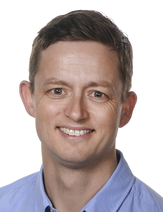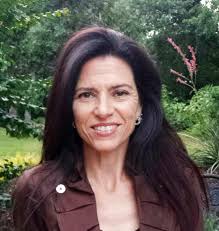|
Overview: Harald Langaas speaks with NaRCAD about his experiences in co-founding Norway’s first national AD program, KUPP. KUPP, which loosely stands for “Knowledge-Based Updating Visits” in Norwegian, has been actively serving Norwegian General Practitioners (GPs) for several years. by: Winnie Ho, Program Coordinator Tags: Chronic Illness, Detailing Visits, Evaluation, International, Program Management  Winnie: Hi Harald, thank you for joining us all the way from Norway to talk about KUPP, the Norwegian Academic Detailing program! Can you tell us a little bit more about yourself and the work that KUPP does? Harald: I’m a pharmacist by training, with experience in working at hospital pharmacies and as a pharmacy manager in the private sector. My interest has always been in how to better provide independent information about the use of medicines to healthcare professionals to improve the quality of healthcare. I work for one of the four Regional Medicines Informational Centers in Norway, one for each of the four health regions. The Norwegian AD Program is strongly connected with those Centers, so my position is split between the regional center and as Director of KUPP, which operates at the national level. KUPP is a small organization – it’s myself and a consultant in clinical pharmacology handling the administration of AD.  W: I can absolutely see why AD fits a lot of your interests! Let’s talk about how KUPP got its start. You were part of the founding of a brand new AD program. What was that like, and what did you learn? H: My colleague Roar Dyrkorn had visited Australia, met the NaRCAD team in Boston, and was very inspired by AD. He saw it as an opportunity to improve the quality of prescribing in primary care and began lobbying to acquire funding for an AD program. Our first campaign in 2015 was put together within a month or two, focusing on NSAIDs (Non-steroidal anti-inflammatory drugs) for GPs. We were extremely fortunate to have Debra Rowett from Australia, who has been pioneering AD in Adelaide for many years, fly out to train our first detailers because we were still novices to this work. This campaign went quickly – maybe too quickly -- but we were able to implement it well, and we had success with the campaign. We’ve been continuing to detail ever since.  W: You also mentioned that Norway is divided into four health regions. Can you tell us a little bit more about these regions and the communities that you serve in each? H: The four jurisdictions, all funded and overseen by the government, are responsible for hospital services in that region. However, primary care services are overseen at the national level. In each region, KUPP has between 5-10 people that are trained as detailers and conduct visits in addition to working at the Regional Medicines Information Centers or at a Clinical Pharmacology department at a hospital. W: On average, how many clinicians does KUPP work with per year? H: There are about 5,000 total GPs in Norway, and we visit between 1,000-1,200 GPs a year, which is about 20%. We have limited resources while trying to reach as many providers as we can nationally. For the funding we have, we’re happy with our work, but of course, we are ambitious! We want to be able to visit everybody.  W: That’s a pretty sizable population that you reach, especially on limited resources! Can you provide some context about Norway’s healthcare system that help us better understand the context in which KUPP operates? H: In Norway, we have universal healthcare, which is fully funded by the government. It means that our healthcare system is quite homogenous across the country. The GPs that we focus on are mostly self-employed, but fully funded by the government. This does mean that when we make arrangements to schedule detailing visits, we have to contact GPs one at a time. They have no financial incentive to see us, and since we take up their time instead of them seeing a patient, they actually lose money by seeing us. This means that we have to ensure that a visit from us is useful and that it’s a valuable investment towards improving the treatment of their patients. We keep all visits to 30 minutes or less. Another important thing to mention is that patients are designated to their GPs. You can’t shop around for providers, so you have to see the same one each time or apply to change to another one. This means that a GP follows their patients for a long period of time, and have a lot of history with their patients.  W: That’s useful background information to know about. Since patients often stay with the same and only GP, how does that impact a GP’s insight into their patient population? H: Because of the long shared history, it means that when we are talking with clinicians, they know their patient pool very well. Even when a GP has taken over a practice, they will be very knowledgeable about who they are serving. W: I imagine that when detailing on chronic conditions, this is an advantage because a GP and a detailer can follow a patient population over time and offer continuous support! Now, we’ve been able to follow KUPP’s work for a while, especially with a lot of your recent presentations and research. How are things going with research and evaluation lately? H: It’s always been useful for us to evaluate and publish our results, especially when we approach the government for more funding. While we can’t do every campaign as a research project, I’ve been working on evaluating a campaign we did on diabetes and also a study on the impact of group visits vs. 1:1 detailing. We’re also working on a small qualitative evaluation of our virtual visits at the moment. It’s been exciting to be contacted by other research groups who want to work with us. It’s really inspiring for us to know there are groups who want to learn more about AD because of us, and that we’re being noticed and seen as a good research partner.  W: It’s always exciting to see where AD travels and how many borders it can cross. We always learn more because the AD community is constantly growing and innovating. As someone who has been at the forefront of establishing AD abroad, what are your hopes for the international AD community at large? H: I would sure hope to see more AD programs emerging in Europe. It would be very helpful to fully connect the AD initiatives that are ongoing around us, to build the same kind of network that North America has had between the United States and Canada. W: We hope to see more programs emerge too! Last question – any final words of advice for detailers and programs? H: The main advice would be to not give up. There will be resistance, and you will run into some troubles, but keep on working. If you believe in the method, and you believe in the work you do, it will pay off. The 1:1 approach is something that separates AD from other tactics, and makes it easier for both clinicians and funding organizations to see you as unique. This work is worth it. Have thoughts on our DETAILS Blog posts? You can head on over to our Discussion Forum to continue the conversation!  Harald Langaas has been the director of a hospital-based medicines information centre (RELIS) in Trondheim, Norway since 2013. Together with colleagues at St. Olavs Hospital he started the first academic detailing program in Norway in 2015, and has been involved in AD work both as administrator and active detailer since then. Since 2018 he has been the director for KUPP – The Norwegian Academic Detailing Program. He is currently working on a PhD based on evaluation of academic detailing.  An Interview with Paula Walker, Clinical Pharmacist Baylor, Scott & White Health | Dallas, Texas Tags: Cardiovascular Health, Chronic Illness, Detailing Visits, Elderly Care, Training Tell us a bit about yourself. How did you get into care redesign and transitional care? I grew up in the area of Inman Square Pharmacy in Cambridge, Massachusetts. After graduating from Northeastern University in 1990, I began my career in community pharmacy. Soon after I entered the pharmaceutical industry, I spent many years representing the biological division of Rhone-Poulenc. I continued to keep connected with public health by practicing in the community part time; I’ve also been serving in a family practice clinic for over 8 years now. Three years ago, upon recommendation from our clinic director, I joined The Institute of Chronic Disease and Care Redesign at Baylor Scott and White Health in Dallas. Tell us about the institute. What does your team focus on with regards to providing transitional care? What approach do you take? Our multidisciplinary team focuses on improving outcomes among chronically ill older adults. Our innovative approach includes using advanced technology to identify patients at most risk for readmission. With a focus on heart failure, COPD, and pneumonia, patients are identified and supported as they transition from one level of care to the next. Our transitional care team encourages each specialty to work at the very top of their license to assist patients whose recovery is complicated by cognitive impairment, frailty, and social issues. Our team shares offices together so each discipline is available to all team members at all times. A strong team and constant communication is the key to our success. What does a typical day or week look like for you in this field? How do you incorporate academic detailing techniques into your work? My role is to perform the medication reconciliation on all of my patients and communicate any concerns with the appropriate providers. I attend weekly rounding with my team and need to be able to make and support any medication recommendations. In terms of using academic detailing techniques, our team practices evidence-based medicine in the care and treatment of our population with chronic disease. It’s also key for a pharmacist in this role to be able to communicate to providers quickly and effectively regarding drug selection, dosage, and titration. Learning and practicing the skills required to communicate effectively in this environment is essential. In a typical day I will consult with a geriatric specialist, cardiology, nephrology, APRN, social worker, and corporate administration. That is a lot of communicating! You attended our Academic Detailing Techniques Training a few years back. What parts of the program worked well for you, and what are the most useful resources or information that you’re still using today? I found the skills learned during the NaRCAD training to be useful and confidence building. There is an art to being able to research information then applying it to support a recommendation in a short amount of time. NaRCAD brings together professionals from different disciplines that are focused on improving the communication of science-based information in their practice or facility. It is useful to connect with others that require these skills in their work. The small class size made it very easy to meet all the participants and learn from their experiences. I believe you can never be too experienced, and I constantly learn from the experience of others. What are some future successes you’re looking forward to in your work and in the field in general? As we prepare to expand the Transitional Care Model at Baylor Scott and White Health under the population health infrastructure, I look forward to the pharmacist’s role to expand as well. Our goal of disease management, well above the national standard, will require evidence based medicine and the sharing of clinical information to all members of the care team. I look forward to continuing my relationship with NaRCAD—together we can help each other transform care, resulting in an improvement in the quality of life for our patients. And I’m looking forward to NaRCAD’s 3rd International Conference on Academic Detailing this November in Boston! Biography: Paula Walker, Clinical Pharmacist, joined the Baylor Scott & White Health Transitional Care Team in 2012. Paula is the team pharmacist and oversees all medication reconciliation for their older adult population with heart failure, COPD, and pneumonia. Prior to joining BSW, Paula has worked in community pharmacy, clinic pharmacy (still active), and the pharmaceutical industry. Paula holds BS in Pharmacy from Northeastern University. |
Highlighting Best PracticesWe highlight what's working in clinical education through interviews, features, event recaps, and guest blogs, offering clinical educators the chance to share successes and lessons learned from around the country & beyond. Search Archives
|
